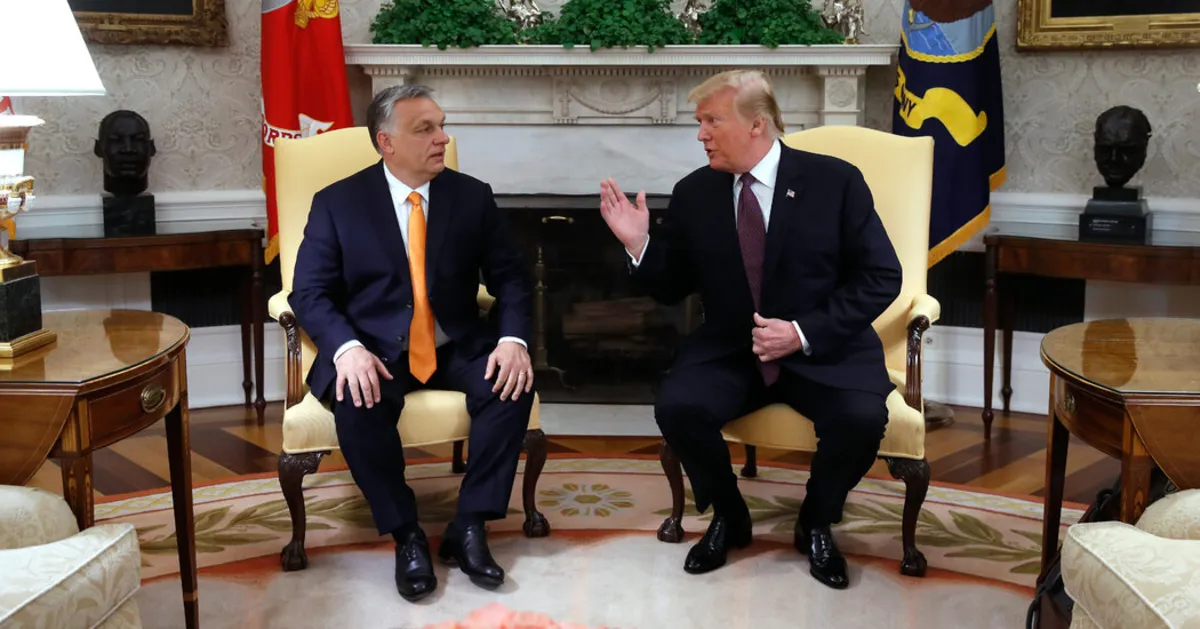
On the surface, the meeting scheduled for Friday between President Trump and Prime Minister Viktor Orban of Hungary seems to be a summit of mutual admiration. Both leaders have discovered common ground in their divergent views from European allies regarding Russia's war in Ukraine. However, the backdrop of U.S. sanctions imposed last month on Russia's two largest energy companies creates a significant point of contention in their discussions.
Hungary relies heavily on Russia for its energy needs, with 86 percent of its oil imports coming from the country. Prime Minister Orban has voiced concerns that the recent U.S. sanctions could jeopardize Hungary's fragile economy, especially as he approaches one of the most challenging re-election campaigns of his career. This meeting with Trump will serve as a critical test of Orban's foreign policy capabilities, a strength he has emphasized in his electoral campaign.
Orban has openly expressed sympathy for Russian President Vladimir V. Putin, aligning himself with Trump in advocating for a resolution to the conflict that includes Ukraine ceding territory to Russia for a cease-fire. Following Trump's re-election, Orban remarked on social media that "Hungarian-American relations have skyrocketed," claiming that "every door in Washington has opened again to Hungary."
In a pointed remark before leaving Budapest, Orban criticized one of Trump's political opponents, suggesting that the two leaders had successfully "repaired the damage" inflicted on Hungarian-American relations under the Biden administration. Although Trump has lifted some sanctions that aimed to penalize Hungary for democratic backsliding, several restrictions remain in place, including the suspension of the personal income tax treaty between the nations. Orban's primary concern, however, lies with the newly announced U.S. sanctions, which he hopes Trump will exempt Hungary from.
The implications of these sanctions could be severe for Hungary. Without an exemption, the country risks facing secondary sanctions from the United States, which could result in hefty fines or exclusion from American financial institutions. Notably, Hungary is already exempt from European Union sanctions on Russian crude oil exports, highlighting its unique position within the EU as one of Putin's closest allies.
To secure an exemption from U.S. sanctions, Orban may need to make concessions on other fronts. Analysts note that Trump possesses significant leverage in these discussions, particularly regarding his expectation that Europe should bear a larger share of the responsibility for supporting Ukraine. The EU has recently agreed to initiate membership negotiations with Ukraine, which could aid in stabilizing the war-torn country’s economy. However, Orban has expressed strong opposition to Ukraine joining the EU, asserting that such a move would "bring the war into Europe."
In recent years, Orban has largely defied the consensus within Europe and the North Atlantic Treaty Organization (NATO) by resisting calls to support military aid or financial assistance to Ukraine. Nevertheless, he has occasionally avoided issuing outright vetoes against such aid. James Batchik, an associate director at the Atlantic Council’s Europe Center, pointed out that Orban's reluctance to facilitate Ukraine’s accession to the EU directly contradicts Trump’s demands for stronger European action.
In conclusion, the upcoming meeting between Trump and Orban is poised to reveal the complexities of international relations amidst a backdrop of war, sanctions, and political maneuvering. The outcomes could have significant implications not only for Hungary and the U.S. but also for the broader European response to the ongoing crisis in Ukraine.